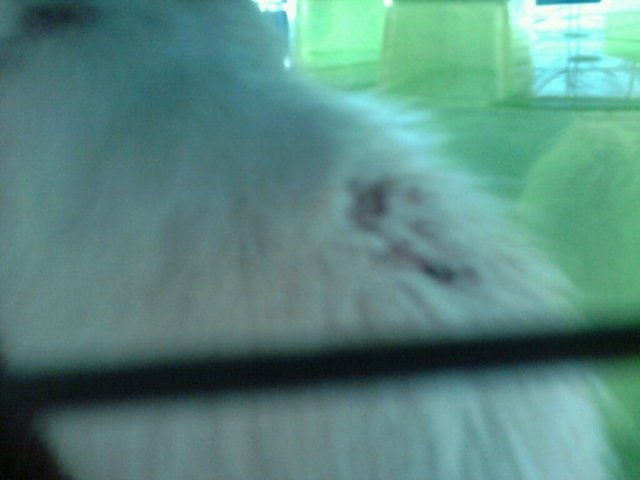QuestionHi Sandra
First of all I must say your knowledge of rats is impressive. You know more than my vet who claims to be a small animal specialist but not an exotic vet. She has misdiagnosed many of my rats and has even told me that mammary tumors cannot be removed and in fact surgery is usually not good for rats because 90 percent of them die on the operating table. I came here and went through all of the questions and answers and must say I ended up reading your stuff most since you seem to know more than anyone on here about medical issues and you encourage mammary tumors be removed. I did research and found out that you are right and my vet who I thought knew what she was doing, is wrong.
So tel me how do I find an exotic vet and how do I know who to take my rats to see? I have four girls and four boys all from a breeder.
thank you and keep up the awesome work here. I hope you stay on here for a long time. this place needs someone that knows the facts instead of guesses like so many other people do
Alicia
AnswerHi Alicia!
I am glad you asked this question and in fact was hoping someone would. I have devoted a little extra time here helping folks locate a Vet that is a true exotic vet or at least one that has alot of experience and has the proper setting to care for these small animals. Many rats die because the traditional vet that has "a special interest" in exotic care doesn't usually have the proper equipment on hand to care for these small animals. Some vets say they are "small animal specialists" or "rodent Vets" and there is no such thing at all in the world of veterinary medicine.
As far as proper medical care goes, the avian and exotic clinic should be designed with the special environment and medical needs of the exotic pet.
This includes specialized instrumentation and pharmacy (proper medications etc...) needs that are not always available in a regular traditional veterinary setting. I hear so often stories about a rat with a very bad case of pneumonia that was sent home on antibiotics instead of being kept at the clinic in a safe enclosure with oxygen being piped in. Instead the rat is sent home to suffer due to lack of oxygen. Why? Because the vet did not have anything to house the rat for starters and did not have the proper set up to administer oxygen to the rat safely. An exotic clinic has the proper medications on hand as well which so often I hear stories of how the vet crushed up tablets, mixed with some type of elixir and figured out the dose on the internet instead of having the correct medication at the office.
To me, if the Vet is not properly equipped to handle these situations, in all fairness, they should NOT see small pets. Sometimes more harm than good is done to them.
So how much more does an exotic vet know than a traditional vet?
Veterinarians who seek board certification in a certain specialty must complete a two- to three-year residency program that provides intensive training in specialties, such as avian and exotic medicine.
You should ask, also, about how often exotic species are seen (if they see other pets, which many exotic vets are now sticking to avian and exotics and NOT seeing cats and dogs:
Locate a vet who specializes in exotics and has taken specialized training ( one who has completed a residency in exotic animal medicine, or one who is board certified in an exotics specialty). Such specialists can be hard to come by, so the next best is someone who has lots of experience treating exotic pets.
Ask a potential veterinarian about their training:
**Ask if they had any special training or continuing education related to exotic pet medicine
**Find out how often exotic species are seen in their practice?
**Ask if they have special facilities or equipment to handle exotic pets!
**Note experience (personal or professional) and familiar with the husbandry and medicine of a particular species.
Now don't get me wrong, some regular vets that see our rats can be very very skilled at surgeries and also treating common and not so common ailments and some understand common concerns that trouble our rats such as mycoplasmosis and mammary tumors and that is just fine to take your rat to these vets as long as they are able to accomodate them properly while at the clinic such as having the proper oxygen set up in case they need it and being able to, say, give them fluids subcutaneously if they rat is dehydrated. I have instructed many vets that were totally in the dark about what needed to be done with a rat when it was sick and I always told them to treat them like they would treat a small kitten and that seemed to make sense to them after that.
Its just too bad there are less than 150 exotic vets in this country and I almost want to say that number is world wide.

 mouse
QuestionQUESTION: Hi Sandra,
I saw some of your questio
mouse
QuestionQUESTION: Hi Sandra,
I saw some of your questio
 Pet rat not drinking water but still eating
QuestionQUESTION: I have a white male pet rat (Mr. Jing
Pet rat not drinking water but still eating
QuestionQUESTION: I have a white male pet rat (Mr. Jing
 Scratching at her stitches.
QuestionQUESTION: One of my ratties has just had an eye
Scratching at her stitches.
QuestionQUESTION: One of my ratties has just had an eye
 now not drinking or eating at all
Question
QUESTION: hi Sandy
I have a ratty quest
now not drinking or eating at all
Question
QUESTION: hi Sandy
I have a ratty quest
 Really bad rat sores
Question
My rat.
My year old male rat has mystery scrat
Really bad rat sores
Question
My rat.
My year old male rat has mystery scrat